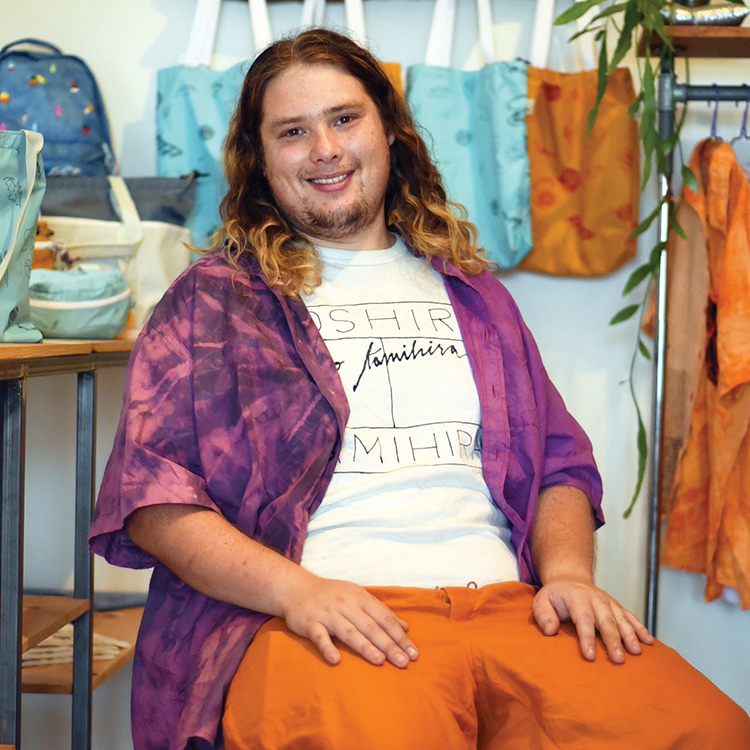Can’t miss art shows and festivals
By Nancy Chen
Nov. 9–19 at International House,
Asian Arts Initiative and other venues
Celebrating its 10th anniversary this fall, the Philadelphia Asian American Film Festival is taking the opportunity to reflect. “This year’s festival will include a retrospective of significant Asian-American films in early Hollywood history,” said Rob Buscher, PAAFF’s festival director. These films include “Daughter of Shanghai” (1937) starring Anna May Wong (the first Chinese-American movie star) and Philip Ahn; “The Thief of Bagdad” (1940) starring Sabu Dastagir; and “The Dragon Painter” (1919) starring Sessue Hayakawa. On one hand, these films include unflattering depictions of Asians as simplistic archetypes, “race bending” (e.g. a person of South Asian descent playing an Arab) and plenty of white actors in brown and yellow face. On the other hand, together these films provide examples of the artistic range, commercial appeal and cultural contributions of Asian-Americans in Hollywood for well over the past century.
In the current political climate, Buscher says the festival is also focused on (film) arts as activism and exploring contemporary issues faced by the Asian-American community. As part of the 11-day festival, PAAFF is hosting a one-day conference at the University of Pennsylvania on Nov. 11, with panels and presentations focusing on how artists and their work can support social change. Visit phillyasianfilmfest.org or PAAFF’s Facebook page (@PAAFF) for more information and the complete festival schedule, coming this month.
See It Before It’s Gone
Mohamed Bourouissa:
‘Urban Riders’ at the
Closing Oct. 2
In 2014, French Algerian artist Mohamed Bourouissa spent eight months immersing himself in the Strawberry Mansion neighborhood in North Philadelphia. Bourouissa gravitated toward Strawberry Mansion because it shares racial and socioeconomic similarities to the Parisian banlieues (suburbs with low-income housing) where he grew up. He decided to collaborate with the Fletcher Street Urban Riding Club, a 100-plus-year-old organization that teaches North Philly youth how to ride and take care of rescued horses. Bourouissa isn’t the first artist to be drawn to Fletcher Street, undoubtedly by a sense of wonder in discovering that such a club, and its nurturing of equestrian tradition, incongruously exists in a thoroughly urban context.
“Urban Riders,” Bourouissa’s first U.S. exhibition, is organized in two sections. The first presents video and relics from Horse Day, an equestrian pageant event Bourouissa co-organized with the Fletcher Street community. Horse Day appears as a joyful celebration, in which riders outfitted their horses in costumes that had been created by local artists for competition. The second section presents sculptural assemblages created by Bourouissa using discarded car parts. Car hoods imprinted with portraits of Fletcher Street riders sketch out the connection between horses and cars as elements of personal expression and male identity.
A two-channel video that shows the riding club stables and scenes from Horse Day anchor the exhibition. We see a rider galloping at full speed across Fairmount Park, a moment that wordlessly expresses an experience of pure freedom. This is juxtaposed with an aerial view that visually establishes the context of Strawberry Mansion in the larger city, with Center City skyscrapers looming in the background.
The video prompts many further questions about the mingling of people from different races and classes, hinted at by the different faces among the audience at Horse Day. Bourouissa’s art has played a role in bringing people of different backgrounds together, but we’re left with the question: How can those initial interactions—the appreciation for another culture and a genuine attempt to understand people outside our own immediate community—extend beyond a glorious day of celebration?
Sold Out, but Going to New York
‘We Shall Not Be Moved’
Sept. 16–18 at 8 p.m.,
September 21, 23 & 24 at 8 p.m.
at the Wilma Theater, 265 S. Broad St.
Opera Philadelphia is launching its inaugural O17 festival this month featuring 12 days of opera across the city. Among the world premieres is “We Shall Not Be Moved,” an interdisciplinary production from the powerhouse creative team of composer Daniel Bernard Roumain, spoken artist Marc Bamuthi Joseph, and director and choreographer Bill T. Jones.
They’ve woven together spoken word, contemporary dance, video projection, and classical, R&B and jazz music to tell a story about five North Philadelphia teens on the run. The piece began with a libretto written by Joseph inspired by the MOVE incident of May 1985, in which local police bombed a rowhouse in the Cobbs Creek neighborhood of West Philly. The bombing and ensuing fire resulted in the deaths of 11 African-Americans, including five children, who were members of the black liberation movement.
“The MOVE incident that inspired [Joseph’s story] remains an open wound. Our intention is not for the opera to be confrontational, but conversational,” said Roumain.
The protagonists are a 15-year-old African-American girl named Un/Sung and her self-selected “family” of four brothers, who seek refuge in a condemned house on the site of a former MOVE compound. “They are five young people who no longer have faith in the public school system, but in the ghosts of other children from Philadelphia’s past,” said Roumain. The group is confronted by Glenda, a female Hispanic police officer who joined the police force as a way to overcome her own experience of disenfranchisement, in an interaction that explores questions of American national identity, gender identity, racism, policing in minority neighborhoods and the failures of the education system.
“Opera’s all about the mystical and the magical,” said Roumain. “I do have a great deal of respect for opera, but as a black person, there’s not a lot of opera for me.” He and his collaborators hope to change that. “There is storytelling, choreography, movement and propulsive music. The music is funky and soulful, influenced by Sade, Satie and Frank Ocean. The audience [for this opera] can be anyone who loves ‘Don Giovanni’ or ‘The Magic Flute’ [two of Mozart’s classic operas] to Netflix—an audience who wants to see and hear a work that reflects them, reflects what’s happening to all of us.”
After its sold-out world premiere at O17, “We Shall Not Be Moved” will travel to the Apollo Theater in New York and to Hackney Empire in London.









